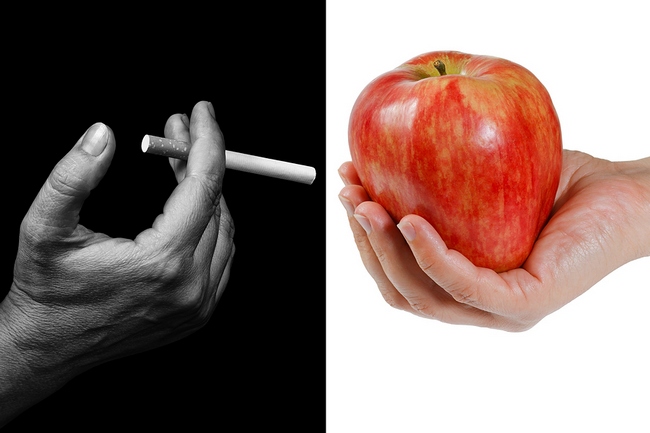- Make It Yourself Lavender Heart-Shaped Bath Bombs!
- 20 Things You Never Knew About “Down There”
- 12 Best Foods For Those Suffering From Arthritis Pain
- 12 Personal Hygiene Mistakes Almost Everyone Makes (Mom Never Told You About #4!)
- 15 Medicinal Plants And Herbs From The Cherokee People
- 12 Mind-Blowing Benefits Of Drinking Coconut Water During Pregnancy
- 12 Outstanding Winter Foods That Won’t Fatten You Up Like A Christmas Turkey
How To Lower Your Blood Pressure Without Medication

Photo credit: bigstockphoto.com
High blood pressure, also known as hypertension, is a condition that usually requires medication in order to keep it under control. There are significant changes you can easily make to your life so that you won’t have to take blood pressure medications in order to keep your numbers in line.
What can happen if your blood pressure is too high?
A study from Harvard shows that having high blood pressure in the United States is the cause of over 15% of the deaths that occur every year. If your blood pressure is too high you could end up with any of the following conditions:
- Heart attack
- Kidney failure
- Cognitive decline
- Aneurysms
- Stroke
What are normal blood pressure readings?
Your blood pressure reading is made up of two important numbers. The first number is the top number also known as the systolic pressure. The bottom number is the diastolic blood pressure. When you put them together, you will have your blood pressure readings to determine if you have hypertension or not.
Normally, your blood pressure readings should be:
- Normal – systolic under 120; diastolic under 80
- Hypertension – 120-139/80-89
- High Blood Pressure (stage 1) – 140-159/90-99
- High Blood Pressure (stage 2) 160 or more/100 or more
Hypertensive – More than 180/110, if your reading reaches these numbers you need to seek medical attention right away. If you already take blood pressure medication, ask your doctor if you should take one to bring your numbers down. This article tells you the best ways to lower your blood pressure without medication.
1. Lose weight
If you are overweight it will affect your health in a number of ways, blood pressure is among them. If you just lose about 10 pounds you will see your blood pressure come down. Another area you need to check is your waistline. For men, make sure that your waist doesn’t measure more than 40 inches and for women, keep the measurement of your waist at less than 35 inches.
Continue to Page 2

Photo credit: bigstock.com
2. Exercise on a regular basis
The amount of exercise you should participate in daily is 30 minutes. This alone will reduce your blood pressure by up to 9 millimeters. You don’t have to go out and join a gym, simply take regular walks, bicycle, jog, dance or swim.
3. Lower the amount of salt you use
Make sure you keep your sodium intake to 2,300 milligrams or less every day. If you are sensitive to salt keep it to a total of 1500 mg every day or less. People who especially should watch their sodium intake include those over 51 years of age or older, African-Americans, and anyone with diabetes, kidney problems, or high blood pressure. Instead of using salt, try substituting fresh herbs and spices for more flavor. Also, cut down on processed foods which usually have a lot of sodium in them.
4. Eat a healthy diet
Make sure that you stick to fresh fruits, vegetables, whole grains, and low-fat dairy items. Keeping your saturated fat intake down and lowering your cholesterol can bring down your blood pressure by 14 mm Hg. Make sure you keep track of what you are eating, increase your potassium, and read every food label so you can reduce you salt and sugar intake,
Continue to Page 3

Photo credit: bigstock.com
5. Stop smoking
The good part about quitting smoking is that once you do your blood pressure will quickly get back to normal. Your lungs will also return to normal and your life expectancy will increase.
6. Cut down on drinking
You don’t have to completely stop drinking, in fact, a drink or two every once in a while is actually good for your health. Make sure you don’t have more than one 12-ounce beer, 1.5 ounces of any liquor that is around 80 proof, or wine that is more than five ounces.
7. Eliminate the stress in your life
Taking up something such as meditation or yoga, which emphasizes deep breathing techniques, can definitely help to bring down high blood pressure readings. If you have high blood pressure, you should practice your breathing for at least 5 minutes first thing in the morning and before you go to bed at night.
8. Limit your caffeine intake
You may need to check the way caffeine affects your blood pressure by checking your readings after having a cup of coffee. If you find that your blood pressure has risen by up to 10 mm HG, you may want to switch to decaf. If there is no significant change, just enjoy your morning cup of java and don’t worry about it.
Continue to Page 4

Photo credit: bigstock.com
9. Keep track of your blood pressure regularly
Go to the store and pick up a blood pressure meter that will give you your reading when you place it on your wrist. Check it when you wake up in the morning and at different times during the day. Your reading will be a little higher after you have performed any kind of activity, such as walking up the stairs, or anything that may have been strenuous for you.
10. Increase your potassium
Foods you want to increase consumption of in order to keep your blood pressure under control include potatoes, tomatoes, sweet potatoes, bananas, orange juice, peas, kidney beans, raisins, cantaloupe, and honeydew melon. It is suggested that you try to take in between 2,000 to 4,000 mg. every day of potassium.
11. Eat chocolate every day
Okay it doesn’t mean to raid a vending machine, it does mean you can add a half an ounce of dark chocolate – around 70 percent cocoa – every day. Dark chocolate has flavanols in it that makes the vessels in your blood much more elastic. A study showed that of the participants who had the dark chocolate every day, 18 percent found their blood pressure decrease naturally.
READ ALSO: High Blood Pressure: Natural Diet And Remedies Infographic
12. Make sure to eat foods that contain magnesium
Making sure that your magnesium levels are not lacking will definitely help with your blood pressure numbers. This powerful mineral works to relax the blood vessels which makes your blood flow more easily. Foods that are high in magnesium include chicken, vegetables, dairy items, meat, legumes, and whole grains.
References:
































